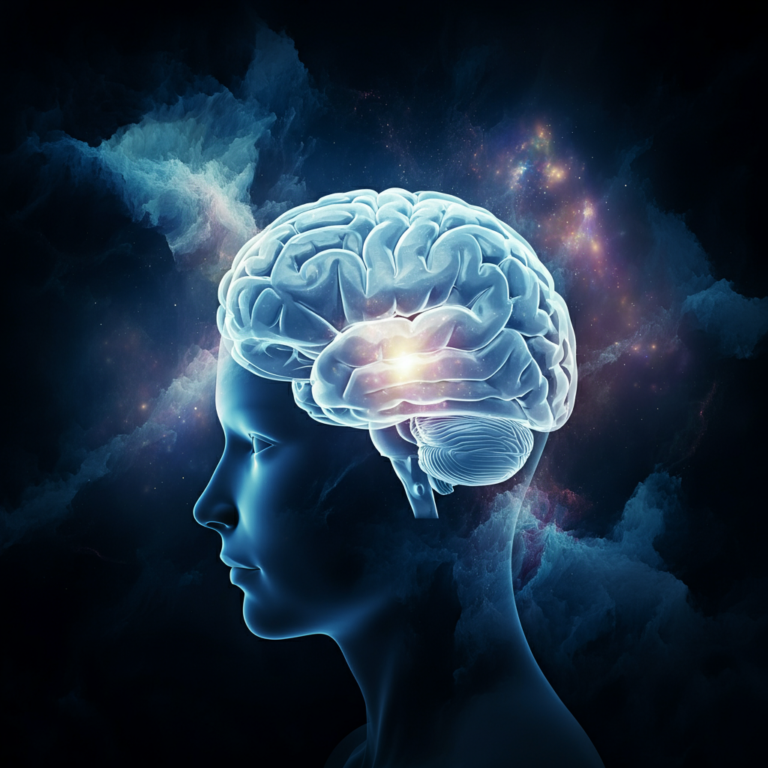Consciousness is one of the most complex and intriguing topics in science. How do we experience the world around us? What makes you, “you”? Whether it’s the feeling of sipping your first coffee in the morning or the deep thoughts you ponder late at night, consciousness captures every aspect of being alive. But the mystery remains—what is consciousness, and can science truly explain it?
This blog unpacks the fascinating relationship between science and the mind by exploring what we know about consciousness, the theories behind it, and how modern research seeks to uncover the answers to this age-old question.
What is Consciousness?
At its core, consciousness is often defined as the state of being aware of and able to think about your own existence, sensations, and thoughts. Put simply, it’s the ability to experience things subjectively. Despite its fundamental role in human life, consciousness remains one of the most debated topics in neuroscience, philosophy, and psychology.
René Descartes famously declared, “I think, therefore I am,” as a way to affirm self-awareness. While philosophy has long tried to explain consciousness, the modern scientific approach focuses more on the biological processes that give rise to it.
Why Does Consciousness Matter?
Understanding consciousness isn’t just an intellectual exercise—it has practical relevance for many aspects of science and our everyday lives. For instance:
- Medicine: Doctors need to assess levels of consciousness in patients under anesthesia or those with brain injuries.
- Artificial Intelligence: Creating machines capable of self-awareness is a hot topic in AI development.
- Mental Health: Disorders like schizophrenia and dissociative identity disorder (DID) challenge our understanding of how consciousness can fragment.
Now, let’s get to the big question—where does consciousness come from?
The Science Behind Consciousness
Modern science focuses on the brain to explain how consciousness arises. Here are a few prominent theories and discoveries:
1. The Brain as the Consciousness Engine
Advances in neuroimaging, like fMRI and EEG, have shown that specific areas of the brain play critical roles in consciousness:
- The Prefrontal Cortex is associated with decision-making, planning, and awareness of self.
- The Thalamus acts as a relay station, processing sensory information before it reaches the brain’s higher centers.
- The Default Mode Network (DMN) is activated when people are at rest and involves introspective activities like daydreaming or thinking about the past and future.
These discoveries suggest that consciousness isn’t linked to just one region—it emerges from complex interactions across multiple networks.
2. Integrated Information Theory (IIT)
Integrated Information Theory is one of the leading scientific models of consciousness. It proposes that:
- Consciousness arises from the way information is processed and integrated.
- The more complex and interconnected the system, the higher the level of consciousness.
For example, a human brain—comprised of billions of neurons—is far more integrated than a simple computer or plant, which is why humans have a deeper sense of awareness.
3. The Hard Problem of Consciousness
Coined by philosopher David Chalmers, “the hard problem” refers to the challenge of explaining why we feel conscious at all. For instance, while science can identify brain signals resulting from pain, it doesn’t clarify why that pain feels unpleasant to us. This subjective quality, known as qualia, remains one of science’s greatest puzzles.
4. The Role of Quantum Mechanics
Some theories suggest that consciousness may connect to quantum processes inside the brain. The Orchestrated Objective Reduction (Orch-OR) theory, proposed by physicist Roger Penrose and anesthesiologist Stuart Hameroff, argues that microtubules in neurons might store quantum information, contributing to conscious thought. While controversial, this idea continues to fuel debate.
Applications of Consciousness Research
Breaking down the mystery of consciousness holds tangible implications for society. Here are some examples:
Mental Health Advancements
Understanding how the brain creates consciousness might help scientists develop better treatments for conditions like depression, dementia, and PTSD. For example, therapies targeting the DMN could help people process traumatic memories without losing touch with reality.
Brain-Computer Interfaces
Technologies like Neuralink aim to bridge the gap between the human mind and machines. By decoding neural activity, researchers hope one day to allow communication without speaking, or even restore lost senses.
Ethical AI Development
While we strive to create AI that mimics human intelligence, understanding consciousness is crucial to prevent ethical dilemmas (e.g., what rights and responsibilities does a conscious machine possess?).
Better Understanding of Anesthesia
Research into how anesthesia affects consciousness could make medical procedures safer and more effective, with fewer side effects.
Evidence Meets Philosophy
Though science provides critical insights, it’s important to consider that consciousness isn’t purely a biological phenomenon. Many philosophers argue that consciousness feels like more than neurons firing in the brain—it seems deeply personal, emotional, and interconnected to our environment.
Eastern philosophies like Buddhism describe consciousness as a state that can be trained and altered through mindfulness and meditation. These practices have even gained traction in Western neuroscience, where studies show meditation can physically alter brain function.
This intersection of science and philosophy highlights an important point—perhaps the mystery of consciousness can’t be fully explained through one lens alone.
Can We Fully Solve the Mystery?
The question remains: Will we one day fully understand consciousness? While current research makes significant progress, many scientists and philosophers agree that we may never unlock all the secrets of the mind. Yet, this doesn’t make the pursuit any less valuable.
Every new discovery brings us closer to understanding who we are—and that’s a worthy goal in itself. From neuroscience labs to philosophy seminars, the exploration of consciousness challenges us to confront both the limits of human understanding and the boundless possibilities of the human experience.
Unraveling the Mind, One Mystery at a Time
The study of consciousness is far from over, and every new insight has the potential to reshape our view of reality. How does your understanding of consciousness impact the way you perceive life, decision-making, and even your relationships?
If this discussion has piqued your interest, continue exploring how consciousness shapes our lives through tools like meditation, self-awareness practices, or simply reading more on the topic. After all, understanding consciousness is a collective effort.





















0 Comments